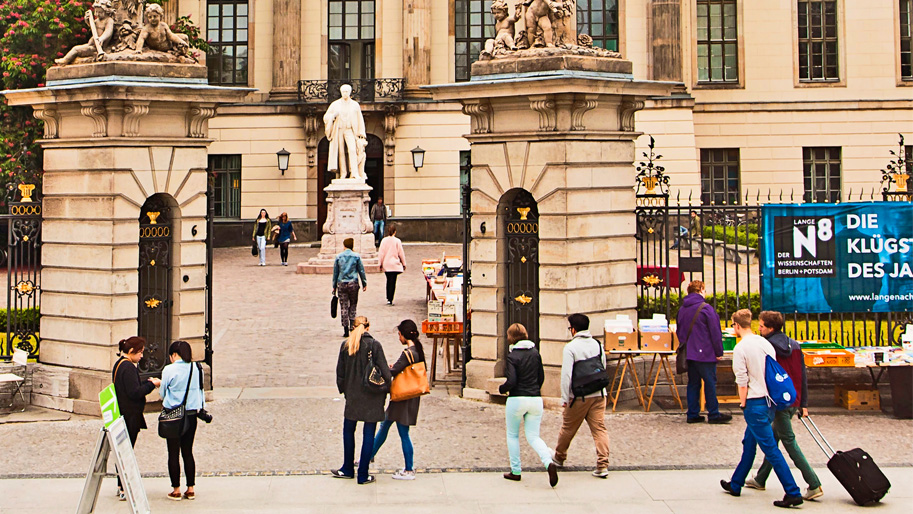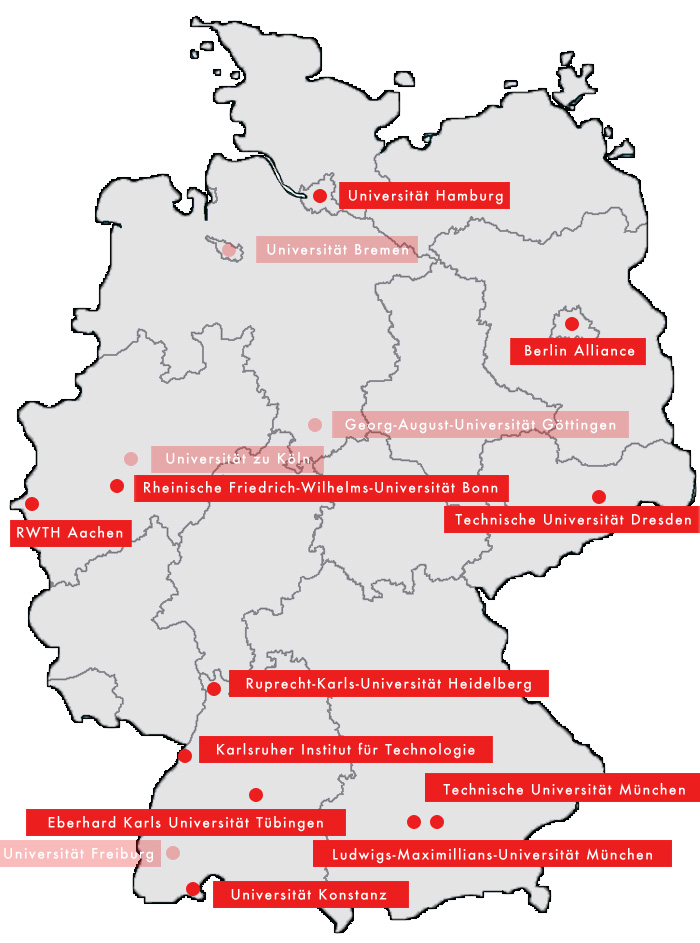Germany to Strengthen 11 Universities to Elite Status
 © iStock
© iStock
In the US there are Harvard, Stanford and MIT—the elite universities whose research and influence ranks them among the best worldwide. In Germany there are the “Universities of Excellence.”
On Friday, July 19, the eleven universities to hold this title for the next seven years were announced. Alphabetically, they are:
- RWTH Aachen University
- Berlin University Alliance: Freie Universität, Humboldt Universität, Technische Universität Berlin
- University of Bonn
- Dresden University of Technology
- University of Hamburg
- Heidelberg University
- Karlsruhe Institute of Technology
- University of Konstanz
- Ludwig Maximilian University of Munich
- Technical University of Munich
- University of Tübingen

The Excellence Initiative
Established in 2006 and administered by the German Research Foundation (DFG) and the German Council of Science and Humanities (Wissenschaftsrat), the Excellence Initiative provides funding along three tracks:
- Graduate Schools: forty graduate schools receive €1 million each per year for young scientists and PhD candidates
- Clusters of Excellence: with its latest selections made in September 2018, fifty-seven research clusters investigating specific, diverse topics were chosen to receive a collective €385 million annually.
- Universities of Excellence
Universities of Excellence
The eleven selected Universities of Excellence will divide roughly €148 million among themselves each year for the next seven years. Broken down, each university or university alliance will have €10-€28 million available to them annually. 75% of this funding comes from the federal government while the remaining 25% comes from the state government where the university or alliance is located. This funding will be available beginning November 2019 and continue until 2026 at which point new selections will be made.
Unlike in the US where top universities are endowed with millions by alumni, donors, industry and public grants, Germany’s universities, with few exceptions, are publicly funded. To keep higher education in Germany visible and competitive among global institutions, the Excellence Initiative was established.
Funding along the “Universities of Excellence” track is based on successful Clusters of Excellence. To apply to be a University of Excellence, each institution must have at least two accepted Clusters of Excellence, and university alliance applicants must share among themselves five. For the most recent funding cycle, nineteen total applicants competed for eleven spots.
The selection committee consisted of 39 experts in their respective fields, 90% of whom were from outside Germany. Also on the committee were the Ministers of Education and Research from each of the 16 federal states as well as Anja Karliczek, Federal Minister of Education and Research.
Takeaways
While the eleven successful candidates have reason to celebrate, other institutions must continue their work in hopes of gaining the title in 2026:
- The universities of Cologne and Bremen were stripped of the titles they held as Universities of Excellence from 2012-2019.
- Replacing them were the universities of Bonn, Hamburg and the TU Berlin (part of the Berlin University Alliance), all which have never held the title, and the Karlsruhe Institute of Technology, which was a University of Excellence from 2006-2012.
- Berlin’s risky application as a university alliance paid off. The selection committee seems to have held up the initiative’s described aim of “facilitating cooperation in the research system.”
Despite only 11 universities carrying the prestigious title “University of Excellence” for the next seven years, this does not negate the research and educational outputs of the many other German universities.
As a closing word during her announcement of the winners during a livestream, Minister Karliczek said: “Together as both federal and state governments, we support universities and the entire science and research system in Germany with a great deal of money … In the coming years, we can expect excellent research results which will shape not only our futures but also the futures of those outside of Germany.”
